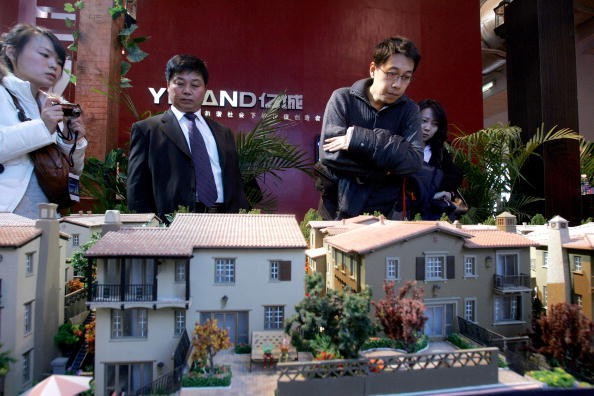Some Chinese cities have followed the steps taken by Beijing municipal government as it implemented new measures aimed at curbing the rising home prices in the capital, Reuters reported.
However, compared to homes in Tokyo or London, apartments in Beijing are still cheaper on the average despite the soaring property market in China. In December, home prices in Beijing surged and continued to soar this year, the report said.
According to home price data provider Fang.com, second-hand homes in Beijing cost an average 63,082 yuan ($9,165) per square meter in March.
"Prices have surged almost 50 percent for a two-bedroom apartment from when I first started looking in October," Jiang Yuan, an employee at a big data company, was quoted as saying.
Starting in the fourth quarter last year, Beijing implemented restrictions to reduce the number of re-sale market deals by 37 percent but it failed to prevent the prices from rising.
New measures
In mid-March, Beijing moved again by increasing the minimum downpayment on a second home, from 50 percent to 60 percent. The minimum increase for bigger homes was also reset from 70 percent to 80 percent.
The municipal government also suspended the issuance of permits for individual mortgage loans of more than 25 years, which pressured borrowers to take shorter loans, which are more expensive. The government also banned the purchase of a third property.
The government also broadened the definition of second-home buyer to include an individual who has a previous mortgage in any place in China, the report said.
Beijing also restricted individuals buying new commercial property and tightened the policy on buyers who fake divorce to avail of first-home downpayment rates.
Following these latest restrictions, the number of clients interested in buying new homes dropped by nearly one-thirds while home viewing fell by 30.7 percent, Lianja, a major real estate broker in Beijing, said.
Although it may be too early to determine the impact of the latest restrictions on prices, the prices in the resale market in Beijing rose by only 1.07 percent in March, compared to 3.3 percent rise in February, Fang.com said.
Local property agents and developers are worried at how the restrictions would affect the property market.
"This round of tightening is unprecedentedly harsh, and I'm very, very pessimistic about the market," Sun Hongbin, chairman of Sunac China Holdings (1918.HK) said on March 28. "The risks are very high in our industry mainly because property prices are now limited by the government. If we buy land at current price levels, we will no doubt lose money."
Yan Yuejin, an analyst with E-House China R&D Institute, said at least 50 other cities, including smaller and less-developed cities such as Zhuozhou and Langfang, have emulated Beijing's move in just two weeks after it implemented the new measures.
China's housing ministry said last week that Beijing's experience must be studied by other local governments.
With these restrictions, property investors shift their focus to other cities where the restrictions are not so tough.
In Hebei, property agents in Xiongxian county shut down their offices after Beijing ordered the ban on property sales. A housing boom is expected in Xiongxian as the government announced plans for the new special economic zone in Xiongan.



























